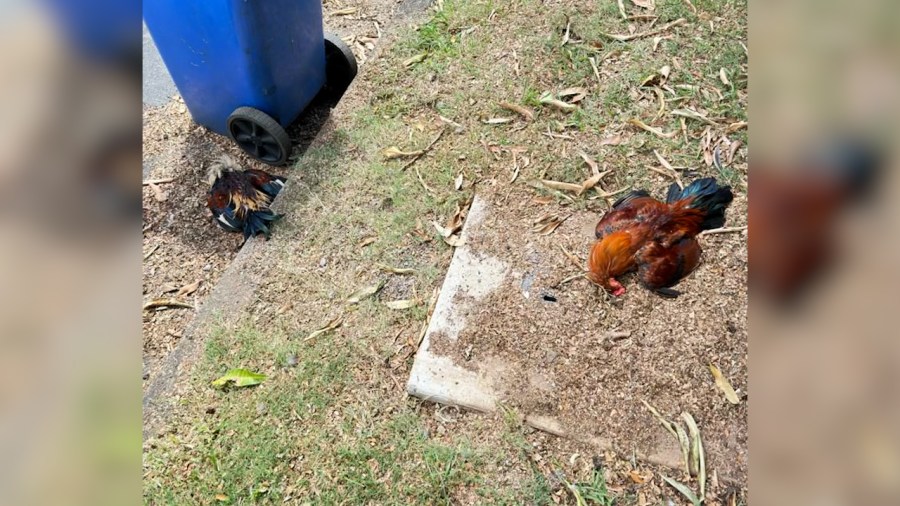NUUANU, Hawaii (KHON2) — There are still many questions over the apparent mass death of dozens of chickens on Oahu.
Check out more news from around Hawaii
Pauoa residents reached out to KHON2 after finding over 60 carcasses. The wife of the Pauoa man who spoke to KHON2 on Wednesday, Sept. 11 said she has never seen anything like it and he felt something had to be done.
“It would have been the stench, because as the carcasses quickly decomposed, this place would have been very stink,” she said.
The resident is currently trying to nurse a 64th chicken back to health. The Hawaiian Humane Society started an investigation and the Hawaii Department of Agriculture was contacted — HDOA officials said the 63 deaths were likely due to an avian disease and said through a statement:
“Further action is not needed as the situation aligns with the natural phenomena of Avian botulism. Evaluation was done by a veterinary medical officer after speaking with both the responding HHS representative and the citizen who reported the situation to HHS. Clinical signs, pattern of events, seasonality and environmental factors (severe rain event a few weeks ago followed by periods of high heat and humidity) are supportive of the Avian botulism cycle. Informational sheet provided has been shared with HHS representative and the citizen reporter. The Division will continue to monitor the situation when additional calls are received.”
Hawaii Dept. of Agriculture
Residents said they have seen deaths in the area from botulism before, but never this many.
“63?! Okay, maybe 10 or 15, but 63 is a huge number of ferals to actually just drop dead within, you know, a 24- to possibly 72-hour time frame,” she said. “If it was botulism, where’s the source?”
Avian doctors said botulism can be found in a bacteria produced in marshes, swamps and streams with low oxygen levels — birds that feed there will often get infected and then pass away.
“When we see chickens and other birds that typically don’t feed on those kind of, from those sources, when they start getting that, it’s from eating the bugs, from the maggots and other things from something that have passed away from it,” said Feathers & Fur Animal Hospital medical director Dr. Brian Walsh.
The Humane Society and residents both told KHON2 that the HDOA has agreed to take one or two samples of recently-deceased chickens for analysis. HDOA officials did not confirm the sampling directly to KHON2, but said residents can call their Animal Disease Control Branch at 808-483-7100 if they have concerns about dead chickens in their area.
“I will definitely cooperate with them, but I am very disappointed that it’s taken three days for them to finally agree to do this,” the resident said.
Stolen jewels, boa constrictors killing owners, check out Weird News here
City and County officials told KHON2 that their Department of Parks and Recreation staff will keep a lookout for dead animals at public parks, click here for more information on how to properly dispose of feral chickens that die on residential property.
